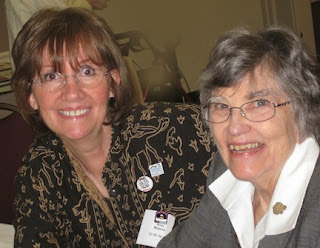Sally teaches at Chatham University and reads profusely, sharing with the group information that may help us with our writing. I'm always impressed when, after one of our group reads, she makes just the right suggestions--sometimes very detailed--for improvement.
I've had excellent suggestion from other group members as well. I recently found a draft of what I've called "my farm story," which a class member--a young mother and former teacher--had read. Her notations were a combination of praise ("I like this description of Benny--so succinct") and helpful suggestions ("would a ten-year-old have said this?--sounds adult to me.")
My dearest friend, also a group member, has read through a number of drafts, catching errors of all types.
In the next post, I'll tell you about a contest I entered. I didn't win but learned a great deal about improving my story by participating.


